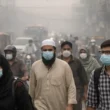Health experts are urging the government for the urgent establishment of a national cancer registry in Pakistan to improve monitoring of the cases, warning that the rising number of patients requires immediate and organized action.
A new study published in The Lancet Regional Health – South Asia highlights the need for a unified system to track cancer cases, plan health policies, and distribute resources effectively, lack of a centralized cancer data system is making it difficult to track the disease, plan health policies, and allocate resources effectively.
The study, conducted by researchers from the Aga Khan University (AKU), University of Wisconsin, and Shaukat Khanum Memorial Cancer Hospital, reveals that Pakistan reported around 185,748 new cancer cases and 118,631 deaths in 2022 alone. However, without a national registry, the available data remains incomplete and scattered.
Currently, 17 cancer registries exist across Pakistan, but they are limited in scope and coverage. Only 19 out of 129 cities provide cancer data, and most registries struggle with poor funding, lack of coordination, and inconsistent data collection methods.
Dr. Zahra, one of the researchers, stressed that cancer registries are vital for identifying disease trends, evaluating treatment success, and guiding government decisions. They are essential for developing health strategies and ensuring the proper use of resources. She added that the absence of a nationwide registry limits proper healthcare planning.
The AKU Cancer Registry, established in 2009, is one of the few hospital-based systems using international data standards. It has recorded over 71,900 cases with the help of trained staff and clinical monitoring.
Although Pakistan has a National Action Plan for Non-Communicable Diseases (NAP-NCD), including cancer prevention, experts say implementation is weak. A National Steering Committee, set up in 2020 under the Pakistan Health Research Council (PHRC), has not yet resolved the issue of incomplete data experts say progress has been slow.
Dr. Sahar Saleem Varani emphasized that building a national registry is a shared responsibility. Dr. Syed Nabil Zafar added that while it takes effort and is a complex task, creating such a system is affordable, urgently needed and entirely feasible in Pakistan if stakeholders collaborate









